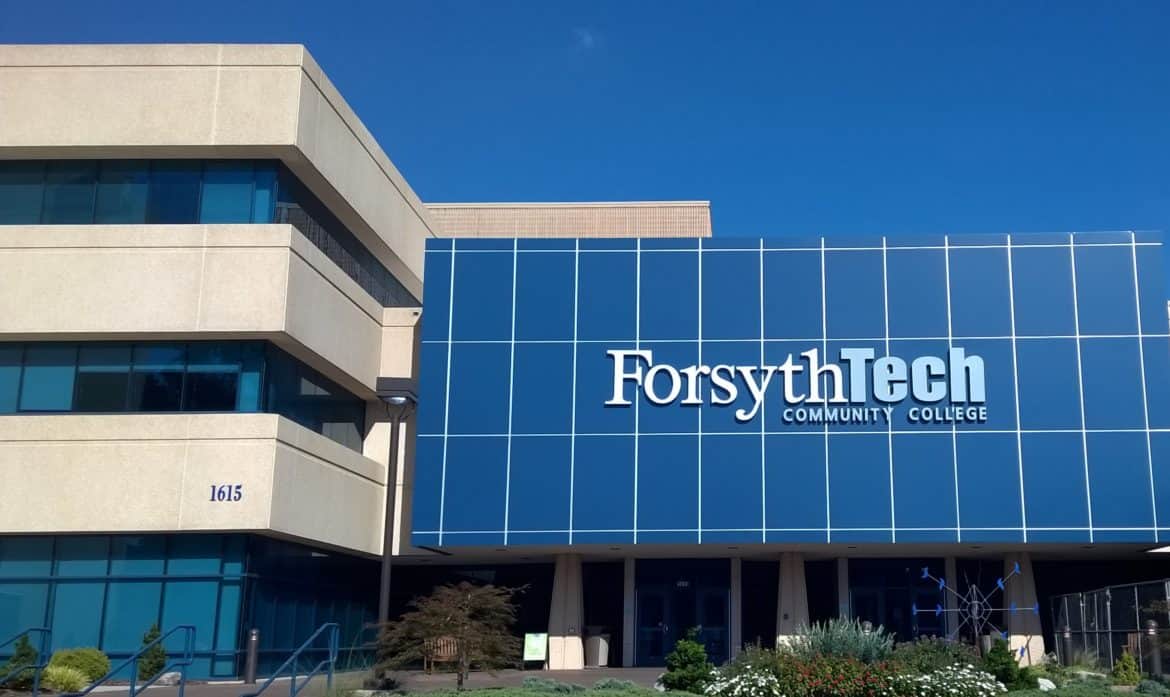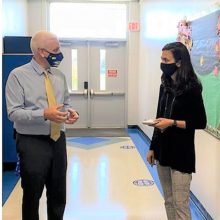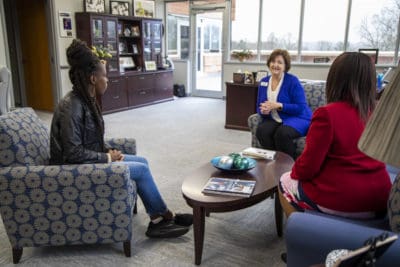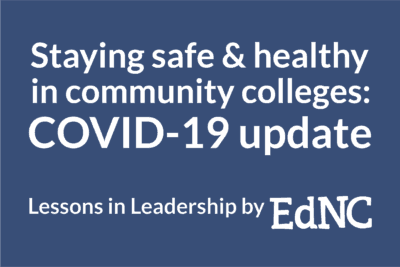

As COVID-19 prompted community colleges across the state to shift away from face-to-face instruction, the staff at Forsyth Technical Community College in Winston-Salem knew their students would face new hardships in the weeks and months to come.
Stacy Waters-Bailey, executive director of student support services for the college, set out to find every resource available to students. She and her team launched Forsyth Tech Cares, a digital form that allows students to identify their needs and make requests. These are then forwarded to staff members at the college who are best suited to reach out and provide assistance.
One of those critical needs for students during COVID-19 is ensuring they have access to food.
“A number of our students have been laid off. They have unforeseen circumstances that they are overwhelmed with at the moment, and we do not want them to be hungry,” said Waters-Bailey.
Recognizing this need, Forysth Tech President Janet Spriggs connected with Angela Hairston, superintendent of Winston-Salem/Forsyth County Schools (WSFCS), to discuss working together on a food partnership. From there, Waters-Bailey worked with district leadership to hammer out the details for what would become a first-of-its-kind partnership for both the college and the school system.
Here’s how it works: Winston-Salem/Forsyth County Schools is currently offering free breakfast and lunch for any child ages 18 and under at dozens of school sites across the county. These meals are also being delivered to mobile sites at apartment complexes, mobile home parks, and other public places. Beginning on March 23, Forsyth Tech students can also pick up free meals from any of the district’s meal sites by showing their student ID — no questions asked.
“Now more than ever, aligning our work and our resources with partners facing similar challenges is paramount. We cannot afford to all build our own ways of doing things and split our scarce resources even further,” said Spriggs, adding that the partnership is an “example of leveraging a program that WSFCS was already doing by investing in the program financially so we could also serve our students.”
While the meals served by the school district to students ages 18 and under are eligible for federal reimbursement from the US Department of Agriculture, that doesn’t cover community college students who are older than 18. That’s why the Forsyth Tech Foundation is footing the bill to offset the cost of providing free meals to the college’s students.
“Our students have been very appreciative. And they are very, they’re excited, because many of our students were already going to these sites to pick up lunch and breakfast for their children, so it just helps them pick up an extra meal,” said Waters-Bailey of the partnership.
Alicia Crews, resident district manager for Chartwells, the school district’s food service contractor, said she was excited to hear from leadership at Forsyth Tech about working together to support their students.
“We recognize that food insecurity does not stop at the age of 18, and we want to reach as many individuals and families during this time to provide nutrition and support,” said Crews. “Rather than provide a meal site at Forsyth Tech where a large student body could be congregating for meals, we saw an opportunity to support them in the various communities in which they live throughout Forsyth County.”
Waters-Bailey sees this partnership as something that could be scaled across community colleges and K-12 districts statewide.
“I would just say reach out and start the conversation, because at least in our experience, the school system was more than willing to help in any way they could,” she said. “It’s just a matter of reaching out and partnering.”
Spriggs added that it would have been unrealistic, if not infeasible, for the college to set up their own separate feeding operations on their campuses with their limited resources. That’s what made the partnership even more important.
“Together, we can do more, we can help more, we can achieve more,” said Spriggs. “I am grateful to Superintendent Dr. Angela Hairston and the leaders of the WSFCS system who agreed with this sentiment and were ready and willing to work hand-in-hand with us.”




